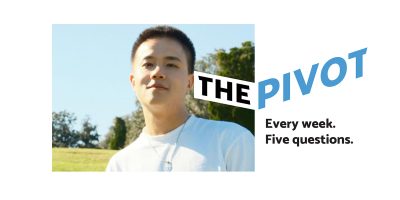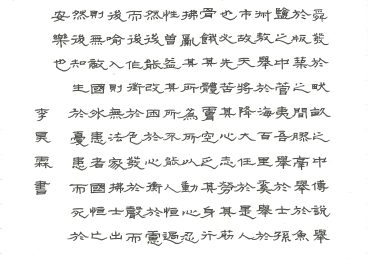
Leo Li uses data from epidemiological studies to predict incident diabetes.

What’s your role in public health?
I am currently a doctoral student in the Department of Biostatistics at the Gillings School of Global Public Health, and I have worked at the UNC Collaborative Studies Coordinating Center for four years. My primary interest is in using data from epidemiological studies with complex designs to predict incident diabetes.
Diabetes is a pressing public health concern that affects millions of people worldwide, leading to serious complications and enormous economic burdens on healthcare systems. Early prediction of incident diabetes is not only essential for individuals at risk, but also for shaping public health policies and interventions aimed at reducing the prevalence of this chronic disease.
In this era of big data and technological advancements, we have a wealth of information at our fingertips, from wearable devices to clinical biomarkers and genetic data. My work as a biostatistician involves developing and applying novel machine learning models to analyze this wealth of data and identifying patterns and risk factors that can help us predict who is most susceptible to developing diabetes. By doing so, we can target preventive measures more effectively, allocate resources efficiently and ultimately improve the overall health of our communities.

Can you describe your focus area in one sentence?
I develop and apply innovative machine learning methods for predicting disease incidence through epidemiological studies with cost-effective designs.
In more detail, my work involves methodological research in machine learning methods for survival data from case-cohort studies. Case-cohort studies represent a cost-effective epidemiological study design that effectively conserves financial and logistical resources while still delivering significant analytical efficiency. My primary research focuses on developing and refining machine learning algorithms to extract valuable insights for precise survival prediction. This research, in turn, will enhance our understanding of the intricate dynamics underlying the disease progression.

What brought you to public health?
Seven years ago, when I was still an undergraduate student at Carolina, I started my research career in public health as a research assistant at the UNC Department of Psychology and Neuroscience, primarily focusing on the behavioral treatment of depression and substance use. Our research project back then was a transformative experience for me, as we were able to help many individuals battling severe depression and heroin addiction find their way back to a healthier, more fulfilling life. Witnessing the significant improvements in their quality of life ignited my passion for public health research. Even now, public health is still a field where my enthusiasm remains unwavering, and I look forward to continuing my journey to improve the well-being of individuals and communities through research and innovation.

Can you describe a time when you have pivoted in your public health career?
During my public health career, I’ve had a significant pivot that has allowed me to harness my quantitative skills and make a more substantial impact. Initially, my research focus was behavioral treatment for substance use and depression in clinical psychology. While I found this work rewarding, I began to recognize that my quantitative skills were a hidden strength waiting to be explored. I aspired to combine my expertise in numbers with my passion for public health research. Five years ago, my advisor, Jianwen Cai, PhD, and Haibo Zhou, PhD, provided me with the opportunity to delve into the world of biostatistics, specifically focusing on research in survival analysis. This transition marked a pivotal moment in my career, shifting my focus from qualitative aspects to the dynamic realm of quantitative methodologies, all while contributing to the broader goal of improving public health outcomes. This pivot has not only been professionally enriching, but also deepened my commitment to making a meaningful difference in public health through the power of data and statistics.

Who are you when you’re at home?
At home, I’m all about juggling my hobbies. I am a bit of a jack-of-all-trades-but-master-of-none type of person.
For the past 15 years, I have been deeply interested in Chinese calligraphy, drawn to the intricate brushwork and deep meanings behind these characters. Lately, I have been mixing it up with some acrylic marker painting and graffiti, and it’s been fun mixing the lively vibes of pop art and hip-hop culture with the elegance of Chinese characters. It’s like an East-meets-West fusion on my canvas!

Li’s acrylic marker paintings

Li’s Chinese calligraphy
But I am not all about artsy stuff; I’m also a sports fanatic. I am into weight training, boxing, jogging and hot yoga to keep my body in check. I also feel incredibly fortunate and grateful to have my parents and girlfriend who are always supportive and by my side. In return, I occasionally moonlight as their (unlicensed) bartender, mixing up some drinks and cocktails to put smiles on their faces.
Read more interviews in The Pivot series.
Published: December 4, 2023
